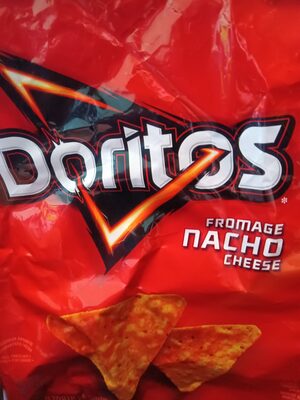
Barcode: 060410076194
Nacho Cheese
DOUBTFUL
📝 Reason: This product contains ingredients requiring further verification. Their Halal status depends on undisclosed processing details and source materials that need clarification.
🏷️ Category: N, /, A
📄 Certificates: No Gluten
Ingredients:
Details
Understanding the Halal Status of Nacho Cheese
When it comes to dietary choices in the Muslim community, Halal certification is paramount. One of the products that often raises questions is Nacho Cheese. With its savory taste appealing to many, it is crucial to determine whether it complies with Halal practices. Currently, the Halal status of Nacho Cheese is marked as DOUBTFUL. This uncertainty mainly arises from the presence of certain ingredients that require further verification regarding their processing and source materials.
Ingredient Breakdown
The ingredients list for Nacho Cheese includes:
- Selected corn
- Vegetable oil
- Seasoning (maltodextrin, modified dairy substances, salt, cheddar cheese, monosodium glutamate, romano cheese, onion powder, corn flour, disodium phosphate, tomato powder, spices, lactic acid, citric acid, sugar, garlic powder, red and green pepper powder, disodium inosinate, disodium guanylate, caramel, sunset yellow FCF, paprika, tartrazine, annatto, turmeric, allura red, natural and artificial flavor)
- Calcium hydroxide
Among these, certain ingredients raise questions about their Halal compliance. In this section, we delve into each component’s status and significance.
Ingredient Analysis
- Selected Corn: Generally permissible unless processed with Haram additives.
- Vegetable Oil: Permissible in Islam.
- Seasoning:
- Maltodextrin and Modified Dairy Substances: Their Halal status requires further investigation as these can vary by source.
- Salt: Permissible in Islam.
- Cheddar and Romano Cheese: Critical to confirm the sourcing to ensure compliance since dairy can sometimes contain non-Halal rennet.
- Monosodium Glutamate: Permissible in Islam.
- Onion Powder: A naturally derived product, considered permissible, unless otherwise specified.
- Tomato Powder: Permissible; botanically a fruit, usually considered Haram only if contaminated.
- Lactic Acid (E270): While typically permissible, it should be verified for animal sourcing and whether it contains alcohol.
- Citric Acid (E330): Generally Halal, sourced from fermented products that are typically acceptable.
- Garlic Powder: Permissible but discouraged before prayers due to the odor it may emit.
- Natural and Artificial Flavor: Typically Halal if no alcohol is present and derived from halal-compliant sources.
- Calcium Hydroxide: Permissible in Islam.
The Role of E-Numbers
The numerous E-numbers and ingredients can confuse the average consumer regarding their Halal compliance. However, understanding what each E-number represents can shed some light:
- E270 (Lactic Acid): Needs clarification about its animal origins. Without this info, its Halal status remains in doubt.
- E330 (Citric Acid): Generally acceptable as it’s often plant-derived.
- E129 (Allura Red): Commonly used as a food color, though it is permissible, it raises potential questions about animal-derived carriers.
Conclusion: Making Informed Choices
With so many variables surrounding the Halal status of Nacho Cheese, it is essential for consumers to conduct thorough research on the ingredient sourcing and processing of each component. The brand’s transparency regarding their certifications and Halal status is crucial in ensuring that consumers can make informed dietary choices. With certain ingredients in Nacho Cheese rendered doubtful, these health-conscious choices become imperative for the Muslim community seeking compliance with dietary laws.
As of now, if you are looking for an unequivocally Halal option, it may be wise to consider alternatives or reach out to the manufacturer for detailed information. Your health and adherence to your faith depend on these careful considerations.
